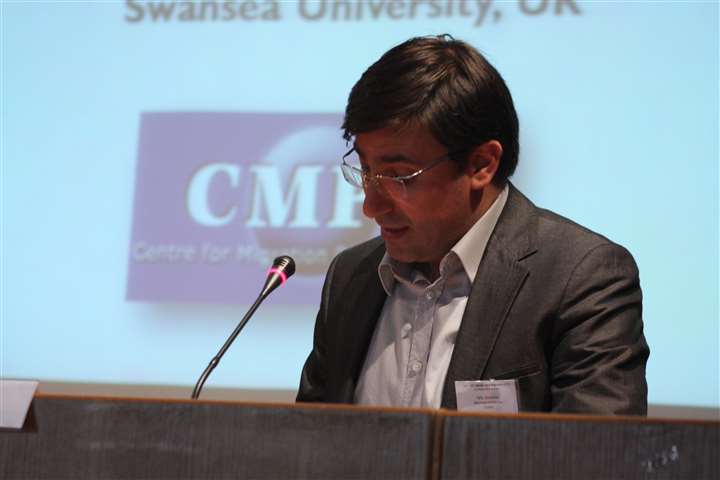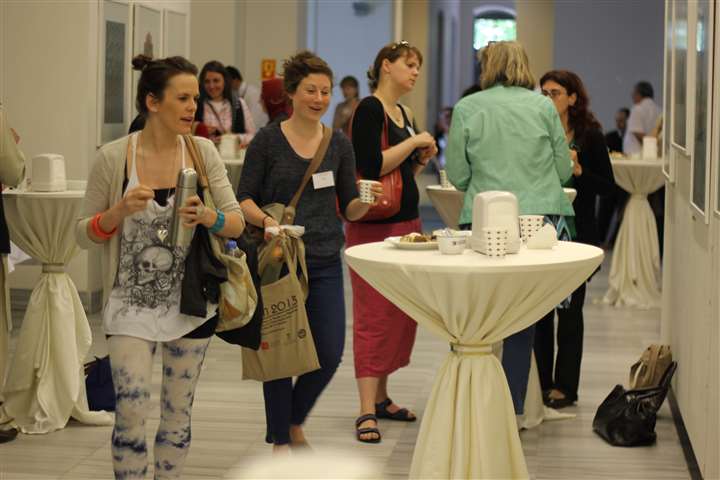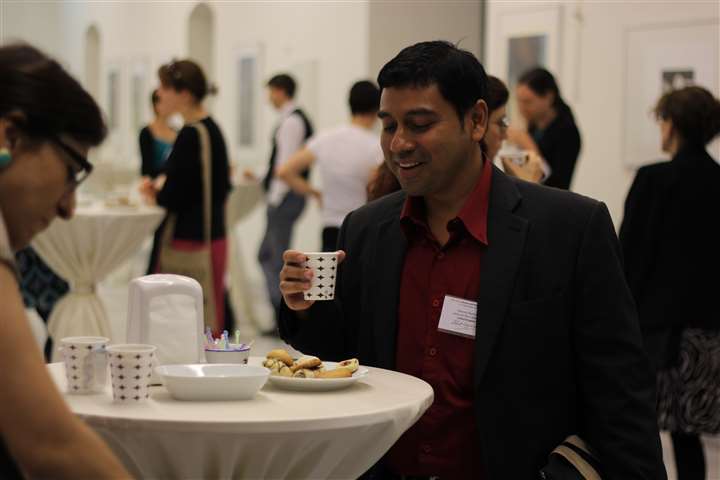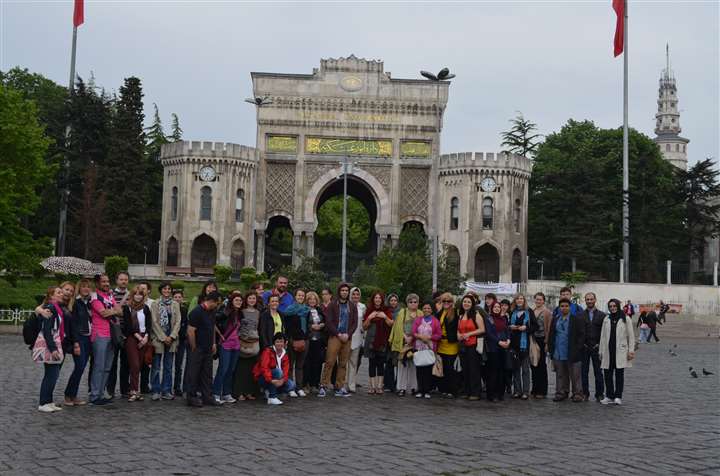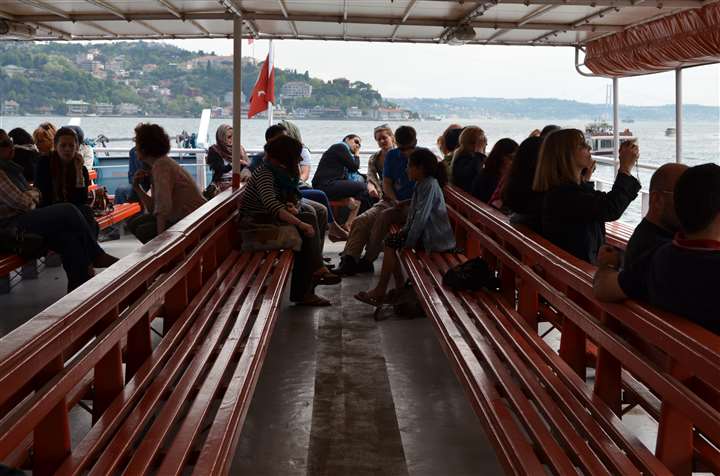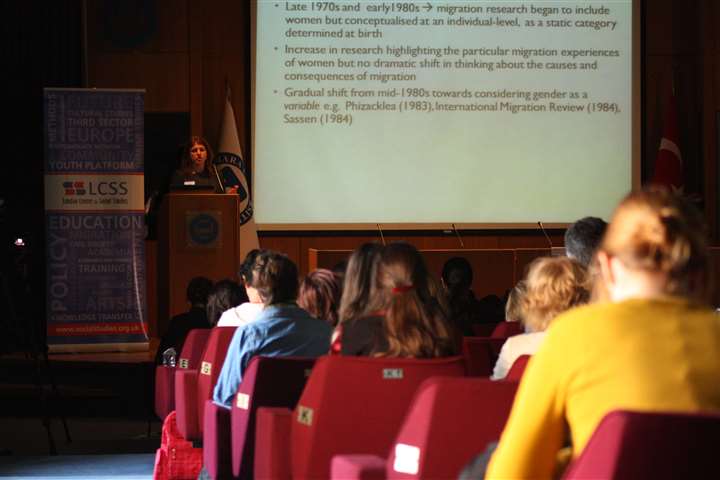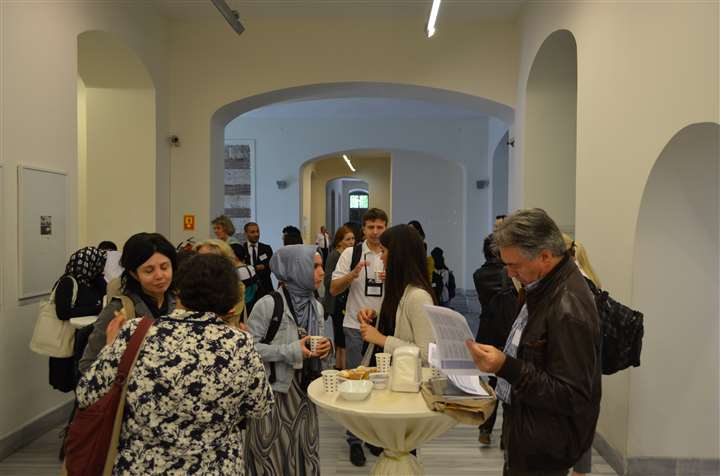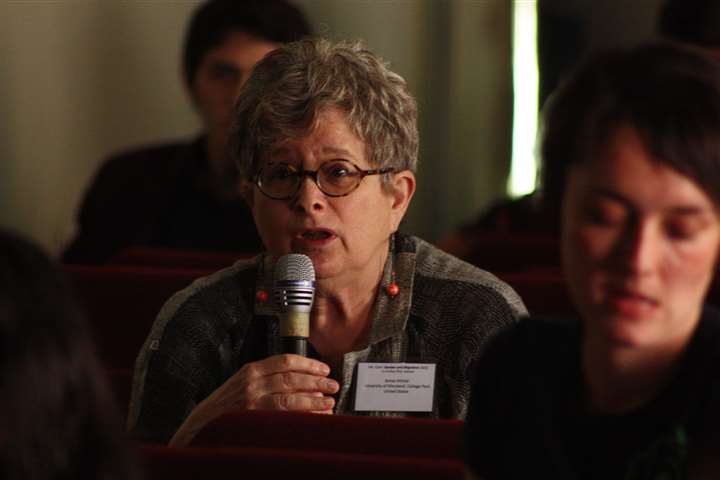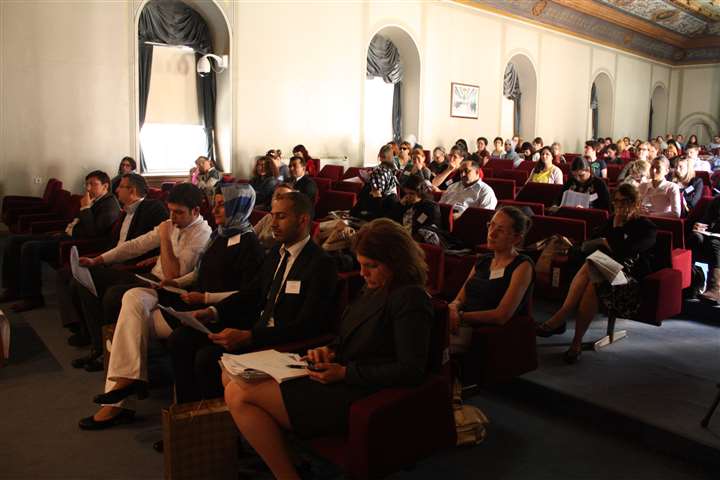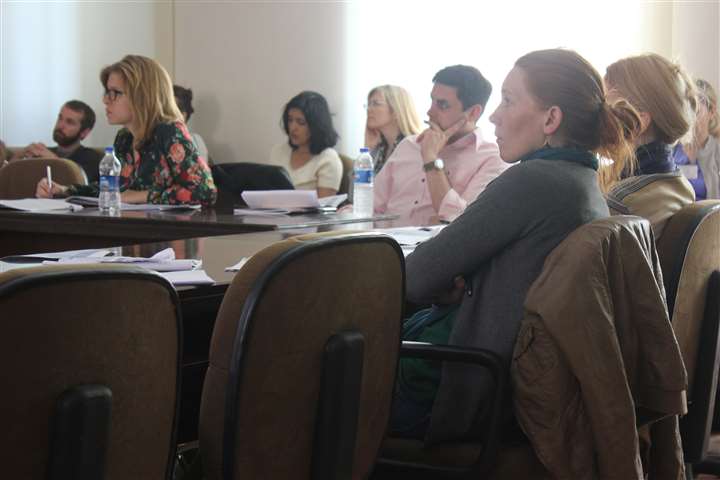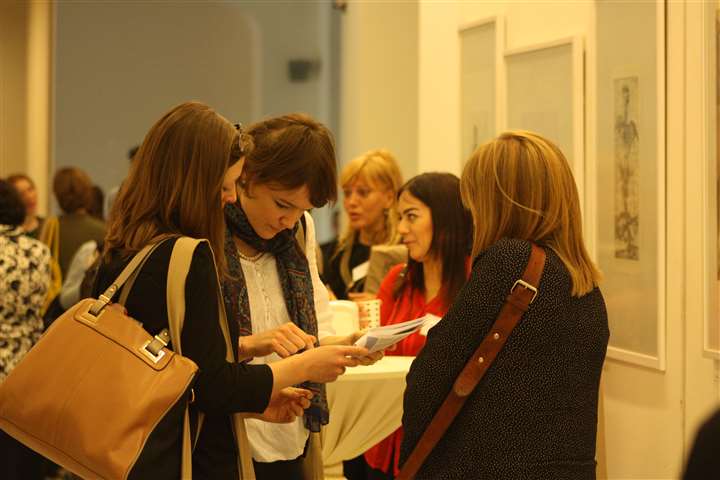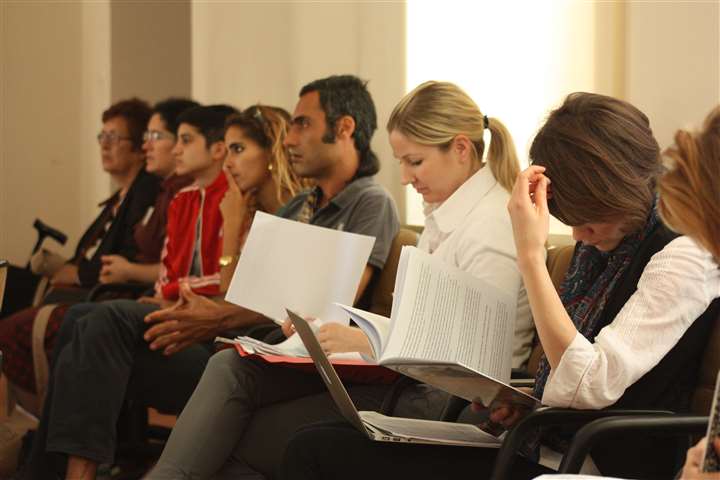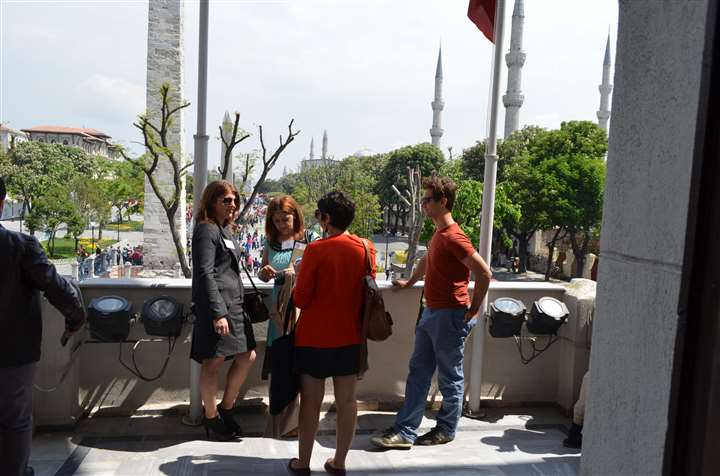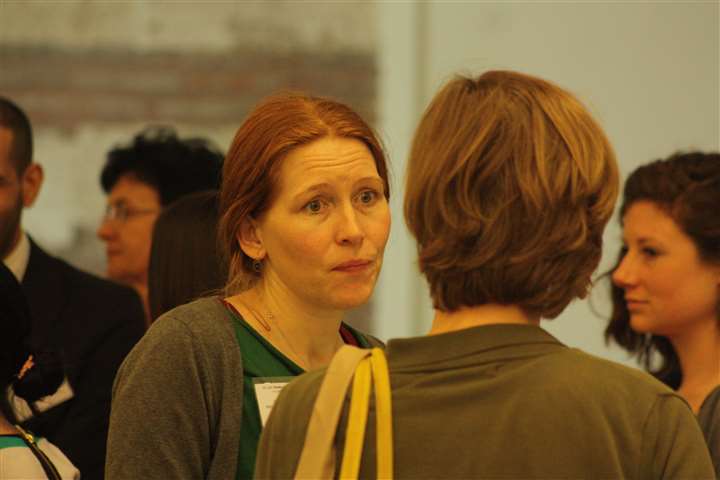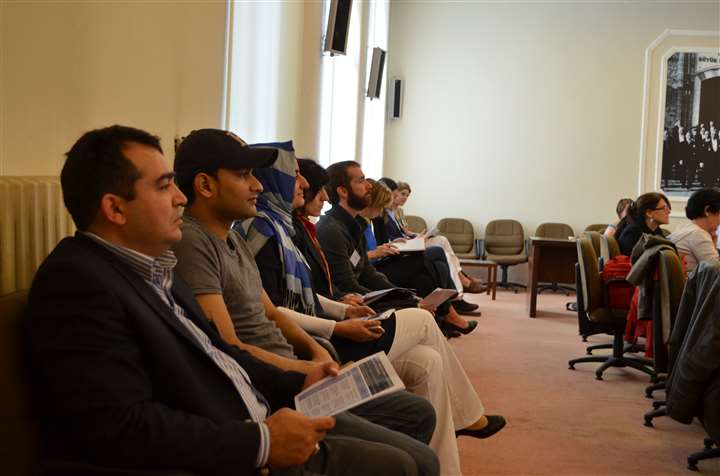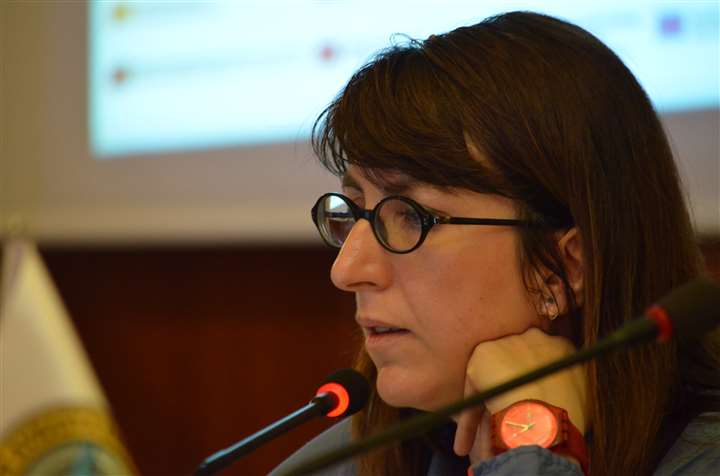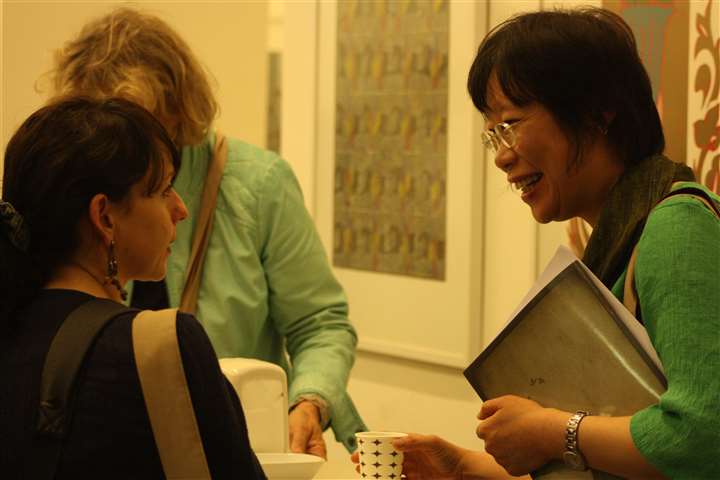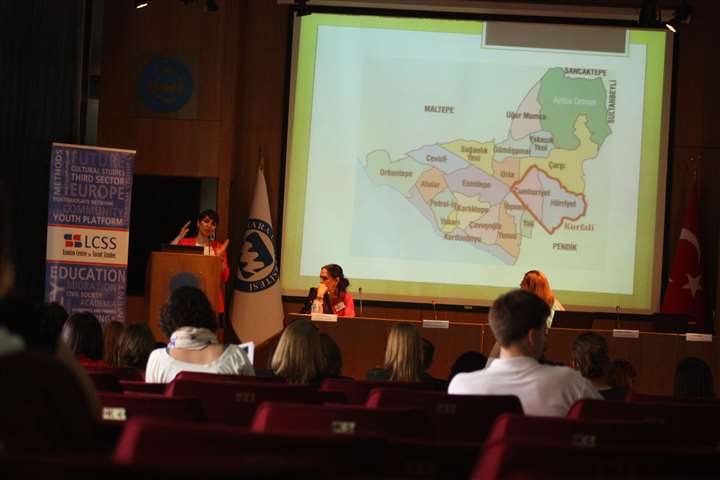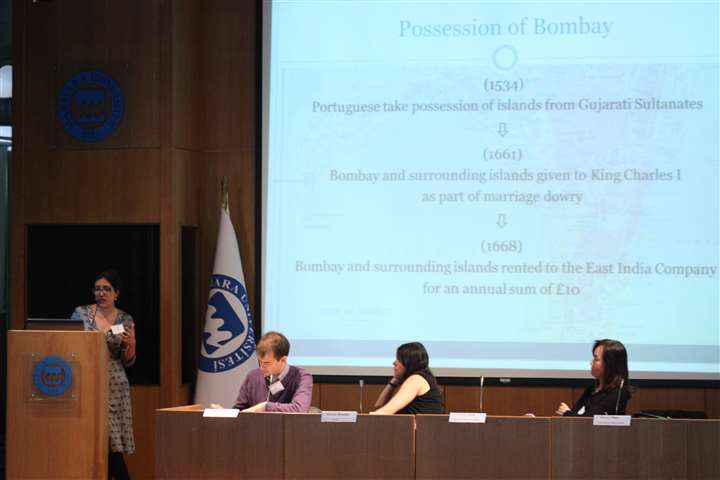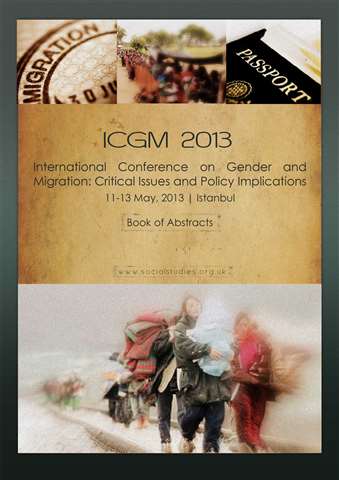
International Conference on Gender and Migration: Critical Issues and Policy Implications
Mar 28, 2014 12:48
11-13 May, 2013 – Marmara University, Istanbul, Turkey
International Conference- Gender & Migration: Critical Issues & Policy Implications
Between May 11-13 an international conference programme on Gender & Migration: Critical Issues & Policy Implications took place at the Sultanahmet campus of Marmara University. The conference was organised by the London Centre for Social Studies in collaboration with the Centre for Migration Policy Research, Swansea University; Gender Institute, London School of Economics; and the Department of Sociology, Marmara University.
The theme of the conference was of timely importance especially as the concept of migration continues to receive strong media coverage during a time of global economic uncertainty. The concept of gender in migration was unique with the conference receiving strong interest well in-excessive of 200 paper submissions for presentations alone. The conference brought together a number of students, academics and people from the third sector from all over the world to share their work and give presentations.
The keynote speakers for the conference were Prof Heather Crawley from the University of Swansea and Dr Sibel Kalaycioglu from the Middle East Technical University (Turkey). Prof Crawley stated that migration is increasingly being understood in the context of gender. Prof Crawley argues that there has been a lack of gender-sensitivity towards women who are fleeing their homeland for gender-related issues such as rape and honour-killing and this has only really gained attention since the 1980s. She further argues that national and international policy has not addressed the gender issues when dealing with migration. Interestingly she stated that refugee women’s and men’s experiences are the outcome of gender, race, class, sexuality and age. Prof Crawley’s speech was chaired by Prof Talip Kucukcan, Marmara University.
Dr Kalaycioglu’s keynote speech focused more specifically on Turkey and Turkish Migrants. Kalaycioglu argues that despite Turkish women migrants increasing their prospects of gaining employment, their labour market participation still remains relatively low, especially in urban areas due to their lack of adequate skills and education. Care work in the informal sector has been a route to employment for women who have migrated from rural areas due to their lack of employment and skills. Discrimination, abuse (including violence) and poor working conditions are some of the situations which these workers in the informal sector have faced as a consequence. Dr Kalaycioglu also stated that reciprocity and solidarity in internally-migrating families in Turkey has remained strong. Dr Kalaycioglu’s speech was chaired by Amanda Gray form UNHCR.
There were 24 panel sessions during the conference with a wide range of issues having been covered within the gender & migration framework. Topics included country-specific gender-inequality, health of gendered immigrants, the role of masculinity in migration, forced migration, migrant females’ participation in the labour market, integration, working conditions of nannies, the Roma community and pensioner migration. A variety of countries were analysed in presentations, including the UK, Italy, Turkey, China, India, Iran, Nigeria, Mexico, Burundi and Canada.
On the third day of the conference programme the participants got the opportunity to do an Istanbul City tour. Dr Eda Unlu-Yucesoy form Istanbul Sehir University gave a talk on the historical change of the city of Istanbul at the Institute of Eurasia, Istanbul University. The participants then got a guided walking tour of Istanbul’s historic sights before a boat tour commenced on the famous Bosphourus.
The conference was kindly supported by the Umraniye Muncipality and the Fatih Munciplaity who both sponsored the conference dinners.
Organised by: London Centre for Social Studies (LCSS) in collaboration with the Gender Institute at the London School of Economics (LSE), the Centre for Migration Policy Research at Swansea University and the Department of Sociology, Marmara University.
The conference proceedings is now available, please click here.
Dates
14th December 2012: Conference announcement
22nd February 2013: Abstract submission deadline
14th March 2013: Paper notification
5th April 2013: Early-bird registration deadline
29th April 2013: Final registration deadline
3rd May 2013: Full-paper submission deadline
11-13 May 2013: Conferece
Venue
Marmara Üniversitesi Rektörlük,
Kucuk Ayasofya Mah.
34413 Sultanahmet
İstanbul / TÜRKİYE
Accomodation
Accomodation options:
Some nearby hotels (all walking distance to the conference venue):
Contact
For all enquiries please contact:
Ms Beyza Ataci,
Conference Administrator
T: +44 (0) 20 7396 3118
Turkey mobile: +90 (0) 535 728 98 79
E: b.ataci [at] socialstudies.org.uk
Contact at Marmara University:
Mr Abdurrahman Babacan
Mobile: +90 (0) 533 558 63 94
People
Conference Committee:
Prof Heaven Crawley,
Centre for Migration Policy Research, Swansea University, UK
Prof Talip Kucukcan,
Marmara University, Turkey
Dr Zeynep Engin,
London Centre for Social Studies, UK
Dr Helen Hintjens,
International Institute of Social Studies (ISS), Erasmus University Rotterdam
Ms Latefa Guemar,
LSE Gender Institute, UK
Dr Sibel Safi,
London Centre for Social Studies and University of East London, UK
Dr Semiha Topal,
Arizona State University, USA
Mr Seref Kavak,
London Centre for Social Studies and Keele University, UK
Doç Dr Ali Murat Yel (Marmara U.)
Marmara University, Turkey
Doç Dr Nuri Tinaz (Marmara U.)
Marmara University, Turkey
Conference coordinators:
Dr Sibel Safi (LCSS, UEL)
Latefa Guemar (LSE Gender Institute)
Local Committee:
Prof Dr Talip Kucukcan (Marmara U.)
Doç Dr Nuri Tinaz (Marmara U.)
Doç Dr Ali Murat Yel (Marmara U.)
Dr Melih Coban (Marmara U.)
Dr Semiha Topal (Gediz U.)
Ms Beyza Ataci (LCSS)
Ms Zeynep Merve Uygun (LCSS)
Ms Ozlem Erden (LCSS)
Mr Seref Kavak (LCSS)
Call for Proposals
International Conference on Gender and Migration: Critical Issues and Policy Implications
Irrespective of the causes of migration, there are a combination of factors that may play out differently for men and women at every stage of the migration cycle. While in many cases migration can improve the conditions of women’s life by providing more income and social status, in other cases – especially if they are irregular migrants – they may also face abuse and discrimination. Approaches that link theory, policy and practice are needed in the global policy agenda to address the gender equality concerns in the migration context. This international conference invites expert contributions on the following areas:
- Transnationalism, diasporas and gender
- Gender and labour migration
- Gender-based violence and forced migration
- Migration and gender in the media
- Healthcare and migrant women
- Gender and migrant family relations
- Gendered experiences in Turkish migration
The decision process for the contributions will include two steps: in the first instance abstracts (up to 350 words) will be reviewed by the conference committee and those invited for the second step will be asked to submit a full proceedings paper (up to 4000 words). All papers invited for the final programme will be published in the conference proceedings and will also be considered for a potential edited book that will be compiled by the organisers after the meeting. Formal meetings will be followed with a social programme and relevant site visits organised by the host institutions.
Documents
We are pleased to announce that the conference programme and the book of abstracts for the ICGM-13 “International Conference on Gender and Migration: Critical Issues and Policy Implications” is now available.
Important note: Presenters should bring their presentation (if applicable) on a memory stick, and both session moderators and presenters should arrive 5-10 minutes before the session start time for set up.
Partners
Gender Institute, London School of Economics and Political Science (LSE), UK
Department of Sociology, Marmara University, Istanbul-Turkey
Centre for Migration Policy Research (CMPR), Swansea University, Swansea-UK

